New Study Explains Link Between Stress and Heart Disease
Did you know that your mental well-being affects more than just your mood? New research shows that living with depression or anxiety may put your heart at risk, too.
Corrigan Minehan Heart Center
Contact Us
Simches Research Building
185 Cambridge Street, Suite 3206
Boston,
MA
02114
Phone: 617-724-9353
Fax: 617-860-3180
Email: fjaffer@mgh.harvard.edu
The laboratory of Farouc Jaffer, MD, PhD, in the Cardiovascular Research Center at Massachusetts General Hospital is developing bench-to-bedside approaches to image and understand in vivo inflammation and thrombogenesis in vascular disease, including atherosclerosis, venous thrombosis, and arteriovenous fistula.
Through close collaborations with molecular imaging chemistry experts, we have developed an array of molecular imaging agents to report on macrophages, fibrin, cathepsin K, VCAM-1, thrombin, and activated factor XIII. Using intravital microscopy, FMT, MRI or PET-CT, we have imaged and quantified these molecular targets in murine models of vascular disease, which have led to new insights into how atheroma, thrombi, and AVF evolve and resolve.
Our major translational efforts focus on developing intravascular near-infrared fluorescence molecular imaging catheter technology to image inflammation in human coronary arteries and coronary stents, using large animal models. In conjunction with world-leading engineering groups, we have developed intravascular NIRF-OCT and NIRF-IVUS catheters and systems. The ability to image inflammation at high-resolution could provide new approaches to identify high-risk plaques and high-risk stents.
Our clinical research efforts focus on improving percutaneous coronary intervention success for chronic total occlusions, radial artery catheterization, and improving the treatment of microvascular coronary disease and microvascular angina.

Dr. Jaffer graduated from Stanford University (1990, BS with distinction in Mathematical and Computational Sciences) and received his M.D. and Ph.D. in Biophysics from the University of Pennsylvania School of Medicine in 1996. He was a Howard Hughes Medical Institute-NIH Research Scholar from 1993-1995. Dr. Jaffer completed a residency in internal medicine at the Brigham and Women’s Hospital (1999) and went on to a fellowship in Cardiovascular Medicine at Massachusetts General Hospital (1999-2001). Dr. Jaffer completed a postdoctoral research fellowship in the Center for Molecular Imaging Research at MGH, directed by Professor Ralph Weissleder, M.D. Ph.D. followed by a fellowship year in Interventional Cardiology. In 2003, Dr. Jaffer joined the MGH Cardiology Division as a faculty member. In 2006, he was promoted to Assistant Professor of Medicine at Harvard Medical School. In 2007, Dr. Jaffer was appointed as a Principal Investigator in the Cardiovascular Research Center at MGH. In 2011, he became an affiliated Faculty Member in the MGH Wellman Center for Photomedicine. In 2012, he was promoted to Associate Professor of Medicine at Harvard Medical School. In 2013, he was elected to the American Society for Clinical Investigation.

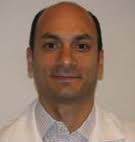
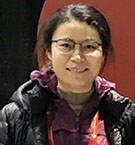
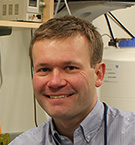
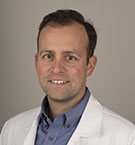

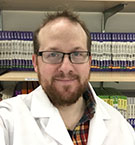
Lab Manager (2008-Present)
Adam Mauskapf has been the lab manager for the Jaffer Lab since 2012, and has been with the lab since 2008. He graduated from Bucknell University in 2007. He helps to run the large and small animal research labs and is the research surgeon for the large animal lab. Adam helps to manage the lab, set up surgery schedules, and do many other technical tasks. He has experience in catheterization techniques, micro- and macro-surgery, animal care, anesthesia monitoring, and other aspects of animal research.

Research Technician (2017-Present)

Clinical Research Coordinator (2018-Present)
Information for health care professionals about the latest cardiovascular breakthroughs, research and clinical advances from Mass General.
When you support the Heart Center, you are making a significant impact to advancing patient care, research and education at Mass General.
Did you know that your mental well-being affects more than just your mood? New research shows that living with depression or anxiety may put your heart at risk, too.
J. Sawalla Guseh, MD, a Mass General Brigham sports cardiologist and director of the Cardiovascular Performance Program at Massachusetts General Hospital, explains that your heart rate is a key metric for improving your fitness.
Researchers from Mass General Brigham will present discoveries and outcomes from clinical trials and research studies for cardiovascular conditions, including heart disease and heart failure, at the European Society of Cardiology (ESC) Congress, being held in Madrid, Spain, from Aug. 29–Sept. 1.
Uncontrolled blood pressure puts people at increased risk of developing heart disease, brain disease, and kidney disease, yet only one in four people have their blood pressure under good control.
New study shows that being sedentary increases the risk of the most common types of heart disease, even among those who get enough exercise
Noli Taylor’s ongoing chest tightness was more than minor pains. When scans revealed a rare congenital heart anomaly, clinicians at Martha’s Vineyard Hospital collaborated with experts at Mass General to diagnose the condition and perform a successful surgery to repair it.
Call, email, or visit our website to learn more about our research.